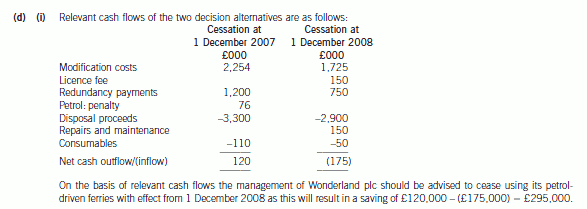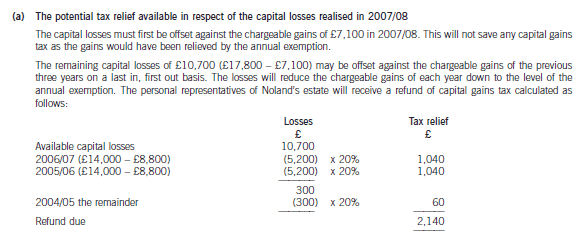ACCA考试报名时间已公布,报名前安徽省考生要这么备考!
发布时间:2020-01-10
早在2019年年末的时候就公布了ACCA考试报名时间,备考的你知道吗?同时,很多小伙伴来咨询51题库考试学习网,想问问ACCA考试那么多科目应该怎么样有效地、科学地复习呢?不用担心,51题库考试学习网帮大家整理了一些考试小技巧,帮助大家事半功倍地通过考试,早日脱坑:
可能有些初次备考ACCA考试的萌新不了解报名时间,51题库考试学习网再次提醒大家2020年ACCA考试的报名时间:
2020年3月ACCA考试报名时间报名周期
提前报名截止 2019年11月11日
常规报名截止 2020年1月27日
后期报名截止 2020年2月3日
2020年6月ACCA考试报名时间报名周期
提前报名截止 2020年2月10日
常规报名截止 2020年4月27日
后期报名截止 2020年5月4日
2020年9月ACCA考试报名时间报名周期
提前报名截止 2020年5月11日
常规报名截止: 2020年7月27日
后期报名截止 2020年8月3日
2020年12月ACCA考试报名时间报名周期
提前报名截止 2020年8月10日
常规报名截止 2020年10月26日
后期报名截止 2020年11月2日
AB(F1)
AB(F1)这门课,首先要从题型出发来分析:目前AB(F1)的题型主要是46个单选题+6个多任务题;因此,从题型上来看就可以分析得知大部分内容其实不需要考生去原封不动地去死记硬背知识点,更多的是要求考生理解性记忆,比如它会教大家用一些模型去分析企业所处的内部以及外部环境,所以考生所学的的是它如何分析这个模型的这种方法,活学活用才能以不变应万变。同时,它还会教一些关于职业道德,企业社会责任的简单介绍。
说到AB(F1),就不得不说SBL课程,其实它们两者是有重复的地方的,就比如SBL课程会把这些AB(F1)课程中的知识点做深入并细化地讲解,就好比分析内外部环境之后企业将如何面对环境的变化、企业在专业层面上的战略,以及在公司治理,财务从业人员的职业道德等做了更深入且全面的介绍。总而言之,AB(F1)是基础,而SBL课程就是延伸。
但考生需要注意的事情就是:因为国家对ACCA考试规则做了限制,你是没有办法同时报考AB(F1)与SBL两个科目的,因为中间还隔着F4-F9 6门技能课程。所以你能做的就是打好基础。对于备考SBL,AB(F1)的知识点是大量的基础知识,所以要注意在考过AB(F1)之后依然需要巩固和记忆相关的知识点,不要把所学的知识点给遗忘了,如果到时候重新来复习的话,就太浪费时间了。
文字类考试对考生的记忆力的要求是极高的,不光要求考生要记忆从中的知识点并且是要熟练记忆。因此51题库考试学习网建议在选择考试科目时要避免选择同时备考多科需要高强度记忆的考试科目,例如F4《Corporate and Business law》以及F8《Audit and Assurance》,如果这些同时备考的话,会增加记忆难度,间接地导致学习效果的下降,最后导致考试成绩的不理想,所以不建议在同一考季中备考多个文字类考试。但是,51题库考试学习网推荐在相邻两个考季中参加考试(比如2020年6月份准备F4,那么2020年6月份就准备F8),因为文字类考试的内容或多或少是有重叠的部分的,区别仅仅在于侧重点不同,识记内容有重叠部分;就比如F8学得很扎实的小伙伴对于后面的学习SBL或者选修高级审计与鉴证《Advanced Audit and Assurance(AAA)》是赢在了起跑线上的,优势是十分巨大的。这就是为什么有一些考神能一次性通过ACCA考试的原因:合理地、科学地、有目的性地、高效地去学习,巧用复习方法能让你的学习效果事半功倍。
F2《Management Accounting》、F5业绩管理《Performance Management》和F9选修高级业绩管理《Advanced Performance Management》
同理,对于F2《Management Accounting》、F5业绩管理《Performance Management》和F9选修高级业绩管理《Advanced Performance Management》。F2课程内容是F5和选修高级业绩管理的基础,三科课程内容都涉及管理会计与财务会计的区别,涵盖:管理会计,管理信息,成本会计,预算和标准成本,业绩衡量,短期决策方法。同样,差别也仅仅是在于侧重点以及研究深度和广度的不同而已。因此,51题库考试学习网建议学习能力强一点的考生将F2和F5考虑同时学习,而学习能力偏弱的考试就先学F2再学F5;在选择报考科目的时间上,建议将F2、F5以及选修高级业绩管理这三科在相邻考季中备考,因为F2中的variance,在F5中体现更加灵活、更加具体。先学F2,再看F5,F2比较简单,很多常识的知识,为F5打好基础,也加深对F2的理解。在这些学科中,ACCAer们将会学到:如何处理基本的成本信息,并能向管理层提供能用作预算和决策的信息。而与此同时,F9科目又是F5升级版,课程研究的更加具体化和形象化,但是RATIO部分是一样的,所以51题库考试学习网建议可以将F5和F9放在同一考季去考试。
F6和P6高级税务《Advanced Taxation》
如果你有选修学习P6高级税务《Advanced Taxation》的打算,可以建议把F6放在F阶段最后一门,在考完F6考试之后,就赶紧学习P6。因为,F6《Taxation》是P6《Advanced Taxation》的直接基础。这门课程涵盖:英国税收体制,个人所得税,企业所得税,资本利得税,增值税,遗产税这五大税种应交税额的计算以及基于个人收入缴纳的国民保险和养老金投资的计算。F6考试中以税负计算为主,而P6更偏向在熟悉税法规定后,帮客户做合理纳税筹划。为什么不将F6和P6在同一考季报考呢?也是由于国家的相关规定,禁止在同一考季报考的,因此在考完F6考试之后,就赶紧学习P6。可以安排在同一年度相邻考季考这两门是最好的,因为两个科目中的相关知识点,例如:税率不变也不用重新记;科目类别要选择一致的,例如F6选择了UK ,P6也就选择UK,但是这样选择存在一个弊端就是,由于在中国P6这门课程学习的人不多,学习资料与课程也很少,如果将F6和P6放在两个相邻,备考时间相对较紧凑,对于资料不好找的科目可能复习到的知识点可能存在不太全面的问题。因此,同学们应根据自身需求谨慎选择。
P2和F7
P2在2018年9月改革为新科目SBR(Strategic Business Reporting)。课程涵盖是十分广泛的,例如:财务会计,财务报表,公司合并报表,分析并解读财务报表。P2的核心就是:让你如何运用合理地会计准则和概念框架编制财务报表同时又能够分析并解读财务报表。不难发现的是:P2有一大部分是重复F7的内容,但是由于ACCA考试规则规定了必须F阶段考试全部通过完毕之后才能报考P阶段,所以51题库考试学习网建议考生在考完F阶段考试之后,可以在下一次考试先考P2,将F7的知识点灵活运用。
如果想要学习4选2的P4的话,可以再F9考完之后学习P4,P4《Advanced Financial Management》是F9《Financial Management》的延伸考查,与SBR也有一定的联系。
课程涵盖:高级投资评估,公司并购、重组,高级风险管理,跨国公司面临的经济环境,您将会学到作为一名高级财务人员进行与财务管理相关决策必备的知识、技巧和进行职业判断的能力。
F8《Audit Assurance》是P7《Advanced Audit Assurance》的直接基础,与F3,F7,SBL等课程都有一定的关系。
F8课程中涵盖:内部审计和外部审计以及设计建立及实施内控程序,重点学习审计师如何了解企业情况,对审计风险进行评估,制定审计计划,在国际审计准则下如何进行设计,建立并实施审计程序,以及各种审计报告和审计意见。
P7是F8的延伸,与p2也有一定的联系。从三个科目之间存在的共同点可以看出:F7和P2主要学习如何编制财务报表,F8和P7学习如何审计财务报表。
P7课程涵盖:监管环境与制度,职业道德,实务管理,历史财务信息的审计与报告,其它与审计相关的认证业务。
在这里要提醒各位小伙伴们,ACCA在P阶段从P4到P7是选修科目,学员们只要选择学习两门并通过考试就可以了。但这4门选修科目却基本通向不同的工作领域。
P4《Advanced Financial Management》更偏向金融方面,想去投行券商的小伙伴们可以考虑选择P4
P5《Advanced Performance Management》偏向财务管理方向,如果对分析公司财务状况以及咨询岗位感兴趣的小伙伴可以选择P5
P6《Advanced Taxation》及P7《Advanced Audit Assurance》可以让各位学员们对税法以及审计准则的知识熟练掌握,对于想在事务所工作的小伙伴们是不错的选择。
鲤鱼不跃,岂可成龙?大鹏驻足,焉能腾空?十年磨刀霍霍,只为今朝一搏。最后51题库考试学习网祝大家都能顺利通过ACCA,取得好成绩!
下面小编为大家准备了 ACCA考试 的相关考题,供大家学习参考。
(iii) Identify and discuss an alternative strategy that may assist in improving the performance of CTC with
effect from 1 May 2009 (where only the products in (a) and (b) above are available for manufacture).
(4 marks)
(iii) If no new products are available then CTC must look to boost revenues obtained from its existing product portolio whilst
seeking to reduce product specific fixed overheads and the company’s other fixed overheads. In order to do this attention
should be focused on the marketing activities currently undertaken.
CTC should consider selling all of its products in ‘multi product’ packages as it might well be the case that the increased
contribution achieved from increased sales volumes would outweigh the diminution in contribution arising from
reductions in the selling price per unit of each product.
CTC could also apply target costing principles in order to reduce costs and thereby increase the margins on each of its
products. Value analysis should be undertaken in order to evaluate the value-added features of each product. For
example, the use of non-combustible materials in manufacture would be a valued added feature of such products
whereas the use of pins and metal fastenings which are potentially harmful to children would obviously not comprise
value added features. CTC should focus on delivering ‘value’ to the customer and in attempting to do so should seek to
identify all non-value activities in order that they may be eliminated and hence margins improved.
(d) The management of Wonderland plc have become concerned about the increased level of operating costs
associated with its petrol-driven ferries and have made a strategic decision to dispose of these. They are now
considering entering into a contract with the Newman Steamship Company (NSC), a shipping organisation based
in Robynland. The contract would entail NSC providing transport to and from Cinola Island for all visitors to the
zoo and circus.
As a result of negotiations with NSC, the directors of Wonderland plc are considering two options whereby NSC
will become responsible for the transportation of visitors to and from Cinola Island with effect from 1 December
2007 or 1 December 2008.
Additional information is available as follows:
(1) NSC would require Wonderland plc to pay for the necessary modifications to their steamships in order that
they would satisfy marine regulations with regard to passenger transportation. The only firm which could
undertake this work is currently working to full capacity and would require a payment of £2,450,000 in
order to undertake the work necessary so that the ferries could be in operation by 1 December 2007. The
same firm would require a payment of £1,725,000 in order to make the necessary modifications so that
the ferries could be in operation by 1 December 2008. The government of Robynland would be willing to
pay a grant of 8% towards the cost of getting the ferries into operation by 1 December 2007, but would not
be willing to pay a grant in respect of any later date.
(2) On 1 December 2002 Wonderland plc paid £500,000 to the Port Licencing Authority of Robynland. This
payment was for a licence which entitles Wonderland plc to use all harbour facilities in Robynland during
the five-year period ending 30 November 2007. The licence could be renewed on 1 December 2007 at a
cost of £150,000 per annum.
(3) Redundancy payments would need to be paid in respect of loss of employment. These would amount to
£1,200,000 if the contract with NSC commenced on 1 December 2007. This amount would reduce to
£750,000 if the contract commenced on 1 December 2008.
(4) Wonderland plc has a contract for the provision of petrol for its ferries which is due to expire on 30 November
2008. Early termination of the contract would incur a penalty charge of £76,000. An emergency reserve
stock of petrol held by Wonderland plc, which cannot be used after 30 November 2007 due to marine
regulations regarding the age of fuel, could be sold for £55,000 on 1 December 2007 but not on any date
thereafter.
(5) The ferries could be sold for £3,300,000 on 1 December 2007. If retained after 1 December 2007 the
ferries would require servicing during the year ending 30 November 2008 which would incur costs
amounting to £150,000. The resale value of the ferries on 1 December 2008 would be £2,900,000.
(6) Stock of consumable items which originally cost £150,000 could be sold on 1 December 2007 for
£110,000 and on 1 December 2008 for £50,000.
Required:
(i) On purely financial grounds, advise whether the management of Wonderland plc should enter into a
contract with NSC with effect from 1 December 2007 or 1 December 2008. You may ignore the time
value of money. (9 marks)

(b) Briefly discuss how stakeholder groups (other than management and employees) may be rewarded for ‘good’
performance. (4 marks)
(b) Good performance should result in improved profitability and therefore other stakeholder groups may be rewarded for ‘good
performance’ as follows:
– Shareholders may receive increased returns on equity in the form. of increased dividends and /or capital growth.
– Customers may benefit from improved quality of products and services, and possibly lower prices.
– Suppliers may benefit from increased volumes of purchases.
– Government will benefit from increased amounts of taxation.
5 Crusoe has contacted you following the death of his father, Noland. Crusoe has inherited the whole of his father’s
estate and is seeking advice on his father’s capital gains tax position and the payment of inheritance tax following his
death.
The following information has been extracted from client files and from telephone conversations with Crusoe.
Noland – personal information:
– Divorcee whose only other relatives are his sister, Avril, and two grandchildren.
– Died suddenly on 1 October 2007 without having made a will.
– Under the laws of intestacy, the whole of his estate passes to Crusoe.
Noland – income tax and capital gains tax:
– Has been a basic rate taxpayer since the tax year 2000/01.
– Sales of quoted shares resulted in:
– Chargeable gains of £7,100 and allowable losses of £17,800 in the tax year 2007/08.
– Chargeable gains of approximately £14,000 each tax year from 2000/01 to 2006/07.
– None of the shares were held for long enough to qualify for taper relief.
Noland – gifts made during lifetime:
– On 1 December 1999 Noland gave his house to Crusoe.
– Crusoe has allowed Noland to continue living in the house and has charged him rent of £120 per month
since 1 December 1999. The market rent for the house would be £740 per month.
– The house was worth £240,000 at the time of the gift and £310,000 on 1 October 2007.
– On 1 November 2004 Noland transferred quoted shares worth £232,000 to a discretionary trust for the benefit
of his grandchildren.
Noland – probate values of assets held at death: £
– Portfolio of quoted shares 370,000
Shares in Kurb Ltd 38,400
Chattels and cash 22,300
Domestic liabilities including income tax payable (1,900)
– It should be assumed that these values will not change for the foreseeable future.
Kurb Ltd:
– Unquoted trading company
– Noland purchased the shares on 1 December 2005.
Crusoe:
– Long-standing personal tax client of your firm.
– Married with two young children.
– Successful investment banker with very high net worth.
– Intends to gift the portfolio of quoted shares inherited from Noland to his aunt, Avril, who has very little personal
wealth.
Required:
(a) Prepare explanatory notes together with relevant supporting calculations in order to quantify the tax relief
potentially available in respect of Noland’s capital losses realised in 2007/08. (4 marks)

声明:本文内容由互联网用户自发贡献自行上传,本网站不拥有所有权,未作人工编辑处理,也不承担相关法律责任。如果您发现有涉嫌版权的内容,欢迎发送邮件至:contact@51tk.com 进行举报,并提供相关证据,工作人员会在5个工作日内联系你,一经查实,本站将立刻删除涉嫌侵权内容。
- 2020-03-08
- 2020-01-09
- 2020-01-10
- 2020-01-10
- 2020-01-10
- 2020-04-18
- 2020-01-09
- 2021-06-27
- 2020-01-10
- 2020-05-06
- 2019-03-23
- 2020-05-21
- 2019-04-17
- 2020-01-09
- 2020-05-20
- 2020-04-07
- 2020-09-03
- 2020-04-30
- 2020-01-10
- 2020-01-10
- 2020-05-09
- 2020-01-10
- 2020-02-05
- 2020-01-08
- 2020-01-09
- 2020-01-10
- 2020-03-12
- 2020-01-10
- 2019-07-20
- 2020-04-18